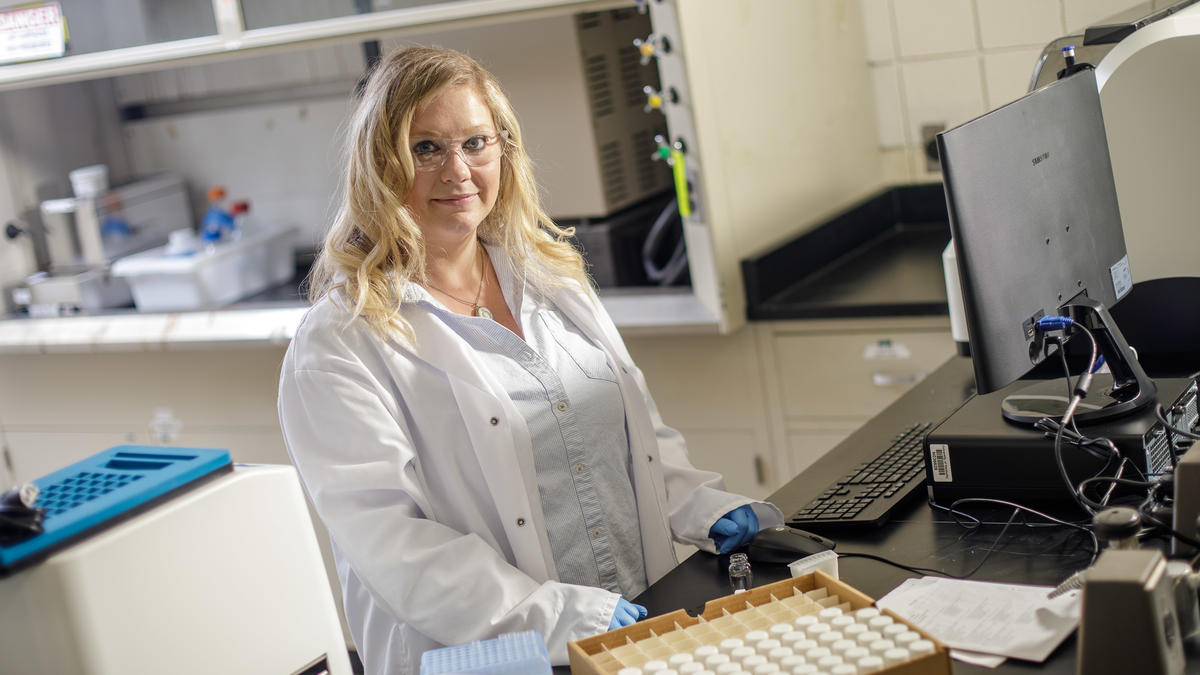Tiffany Messer Receives NSF CAREER Award
Tiffany Messer Receives NSF CAREER Award

For her innovative research efforts to improve water quality in rural and urban areas, Tiffany Messer, assistant professor in the University of Kentucky College of Agriculture, Food and Environment, has received a prestigious National Science Foundation Faculty Early Career Development award.
NSF CAREER awards are presented to young faculty members who have the potential to serve as leaders in research and education in their area of study.
“My goal is to design cost-effective wetland treatment systems for rural communities and low-income areas,” said Messer, a faculty member in the UK Department of Biosystems and Agricultural Engineering.
In the five-year project, she will specifically study whether wetland treatment systems may help filter contaminants, including nitrate, insecticides and antibiotics, from water runoff. She will use state-of-the-art tracers and automated sensing technology to determine how these contaminants impact the system. She will also study the role that antibiotics and insecticides may play in hindering nitrate removal in water treatment processes.
If effective, these natural systems may have numerous benefits for communities who need to improve their water quality, especially to those with limited financial resources.
“Ecosystem-based water treatment facilities have lower maintenance and lower costs than traditional water treatment facilities,” she said. “They are also customizable based on the location.”
Messer’s project includes an educational outreach component aimed at urban and rural Kentucky high school students. The students will learn ways they can improve the quality of their local water. With the knowledge they gain, they will design potential ecosystem-based water quality treatment systems for their area. Messer and her lab members will test out the viability of these designs in her UK lab.
“These students will interact with researchers in my lab throughout the entire project,” she said. “This project is designed to empower them and give them an important voice for improving local water quality.”
Students will also participate in a virtual pen pal program with students from another school. As virtual pen pals, they will discuss local water quality issues, possible treatment options and encourage each other to be good stewards of water quality.
Research reported in this publication was supported by the National Science Foundation under Award Number 2042761. Opinions, findings, and conclusions or recommendations expressed are those of the author(s) and do not necessarily reflect the views of the National Science Foundation.
